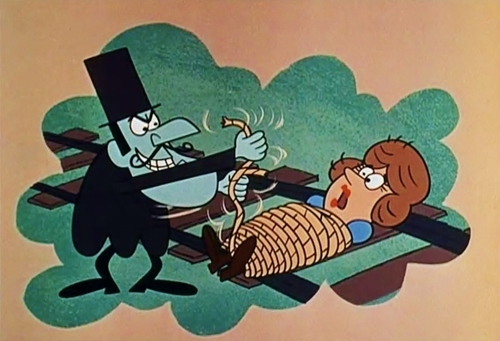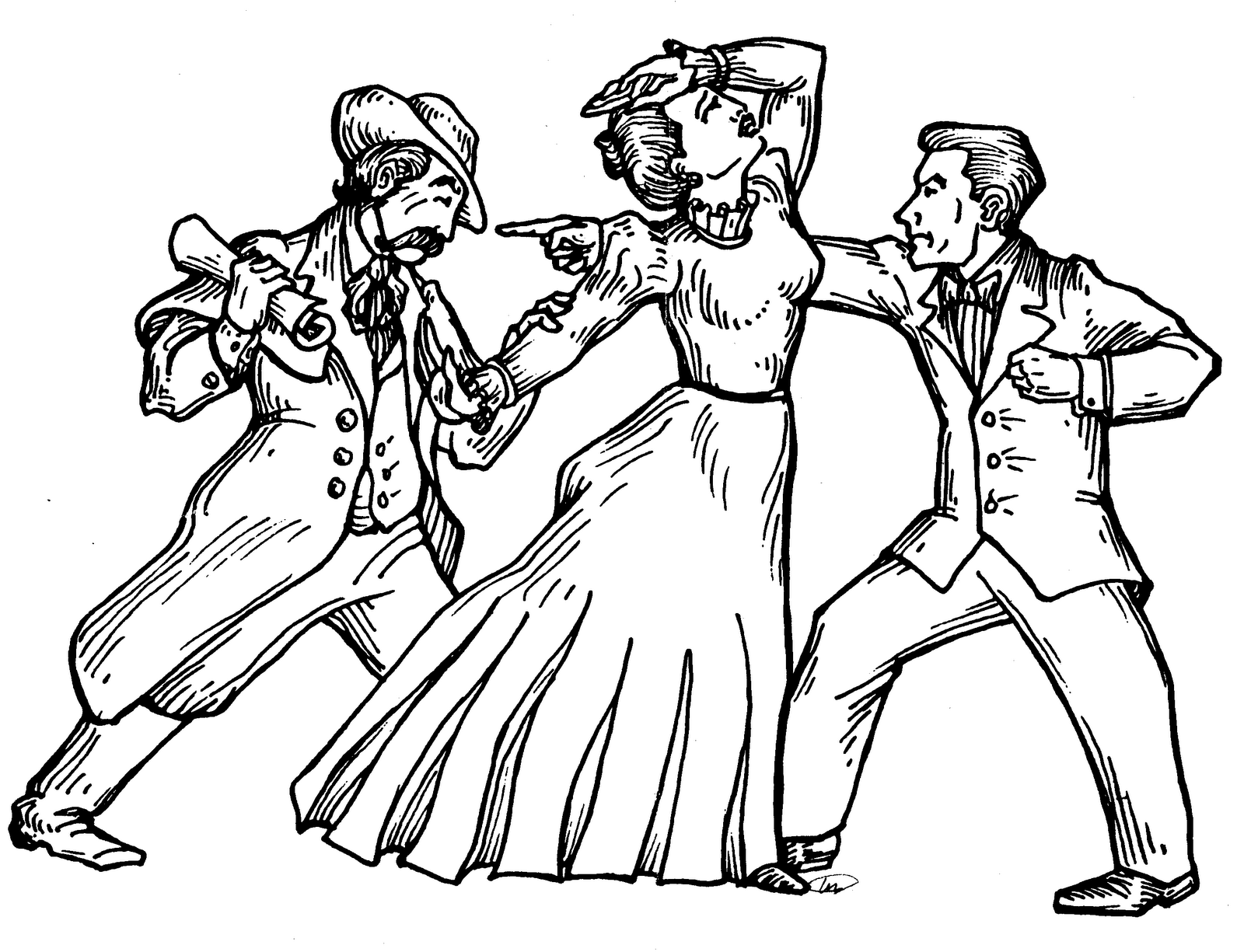 |
Craig White's Literature Courses Melodrama |
 Satire of melodrama: villainous Snidely Whiplash ties up virtuous heroine Sweet Nell in 60s cartoon Dudley Do-Right |
Oxford English Dictionary
1.a. A genre comprising any of the types of melodramatic work, esp. exciting by exaggeration and sensationalism, and often (chiefly in earlier use) accompanied by music appropriate to the action; the style of drama characteristic of such a piece.
1.b. Originally: a stage play, usually romantic and sensational in plot, and interspersed with songs, in which the action is accompanied by orchestral music appropriate to the various situations (now hist.).
Later (as the musical element ceased to be regarded as essential): a play, film, or other dramatic piece characterized by exaggerated characters and a sensational plot intended to appeal to the emotions.
![]()
Wikipedia: "The term melodrama is most often used pejoratively [disparagingly] to suggest that the work the term is applied to lacks sophistication or subtlety."
General qualities of melodrama:
-
moral polarization (good vs. evil, honor vs. shame)
-
narrative use of extreme coincidence and ‘’deus ex machina’’
-
sensationalism (action, violence, thrills).
stock characters:
-
virtuous hero exemplifying and defending honor
-
envious, conniving villain motivated by base impulses
-
innocent heroine
-
self-sacrificing parents
-
faithful servant or sidekick
stock plot devices:
-
coincidences: wandering lovers or separated parents and children bump into each other in crowded cities or empty wastelands
-
letters between lovers (or parent-child) are intercepted or lost, prolonging suffering
-
hidden documents: secret wills, exculpatory notes, maps to buried treasure or long-lost keepsake
-
lingering death scenes, esp. deathbed scenes
